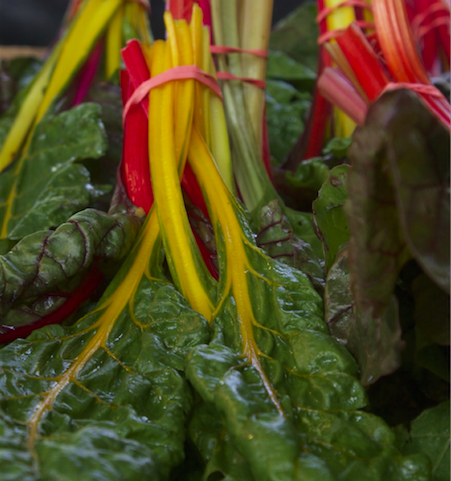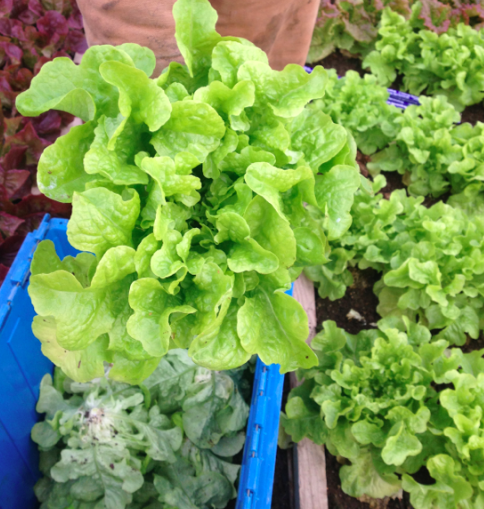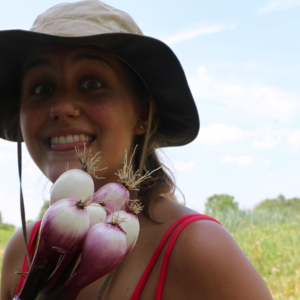You come home from that 6 o’clock class, starving, in need of a quick fix. You’ve got a fridge full of fresh salad fixins from your weekend trip to the farmers market, ready to go. But does everything really need to be washed?

Photo by Liana Glaser
Whether or not actual dirt or insects are visible, you can be exposed to tons of harmful pesticides or bacteria hiding in those leafy greens or on that beautiful bunch of radishes.
According to the FDA, harmful bacteria, such as Cyclospora cayetanensis, E. coli, and Shigella can come into contact with the produce while it’s growing, after it’s harvested, and even while it’s being prepared, stored, or shipped.
Not the best news, I know, but if you’re going out of your way to eat this healthy food, you should make sure you’re not making yourself sick in the process.
Keep in mind that eating local or organic doesn’t necessarily guarantee that you won’t consume pesticides that could potentially make you ill. While most organic farmers can promise pesticide-free practices, they can’t promise that their produce wasn’t contaminated after harvesting.

Photo by Matt Stevens
Matt Stevens, an organic farmer at Blue Heron Farm located in Lodi, NY, says that he “truly can walk throughout the farm, grab any vegetable out of the ground or off the plant, eat it, and trust that [he’ll] be safe”. Matt feels this way because he can, “directly see each stage of [the produce’s] harvest and preparation”. But, with that being said, he acknowledges that consumers who do not witness the step-by-step process may feel more comfortable giving their produce a rinse.
Organic farms like the one Matt works at do everything they can to be transparent and safe, including washing their produce before selling it. But, they can’t control external factors and suggest a good wash before consuming.
What happens if I consume these harmful pesticides/bacteria?
According to the Center for Disease Control and Prevention, produce accounts for 12% of all food-borne illnesses or illnesses resulting from contaminated food. One example of a “food-borne illness” occurred in 2003 when several outbreaks of Hepatitis A traced back to green onions imported from Mexico. Over 500 people were diagnosed with Hepatitis A, and this diagnosis was fatal for three people.
While this may seem like it wouldn’t or couldn’t happen to you, think about this next time you’re in a public setting: 1 in 6 Americans get sick from food-borne illnesses each year, and each year these illnesses result in an estimated 128,000 hospitalizations and 3,000 deaths.
May the odds be ever in your favor.

GIF courtesy of ohmagif.com
Just kidding. There is a simple way to avoid this, so don’t stop eating your fruits and veggies just yet. The FDA recommends just a quick, but thorough, rinse under cool running water. No soap necessary and definitely no fancy produce washes.
If you buy food that is pre-washed, you’re good to go. Most packaged leafy greens, such as baby spinach, arugula and lettuce mixes, are double — and sometimes triple — washed. Phew.


